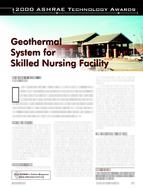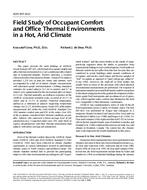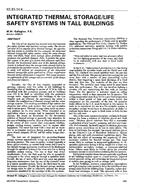The applicability of the electrohydrodynamic (EHD) technique for in-tube condensation heat transfer enhancement of R134a was investigated experimentally. The test section consisted of a horizontally mounted tube-in-tube heat exchanger with test refrigerant flowing in the inner tube and water flowing in the outer tube. Two types of tubes were tested – smooth and microfin copper tubes, both 12.7mm (0.5in.) outside diameter and 305mm (12in.) long. Six different electrodes representing various electrode diameters and electrode spacing were tested. With the most optimum electrode (highest enhancement), detailed experiments were performed as a function of parametric values of inlet quality, heat flux, and mass flux. With the optimum electrode heat transfer enhancement of as high as six-and-half-fold was found. The EHD power consumption was less than 0.08% of the condenser capacity. The pressure drop results indicated that the EHD effect introduces additional penalty.
KEYWORDS: year 1997, Condensation, heat flow, refrigerants, R134a, heat transfer coefficient, pressure drop, electrodes, tube in tube heat exchangers, experiment, measuring, heat exchangers, fluid flow
Citation: Symposium, ASHRAE Trans. 1997, vol.103, part 1
Product Details
- Published:
- 1997
- File Size:
- 1 file , 1.2 MB
- Product Code(s):
- D-16470


